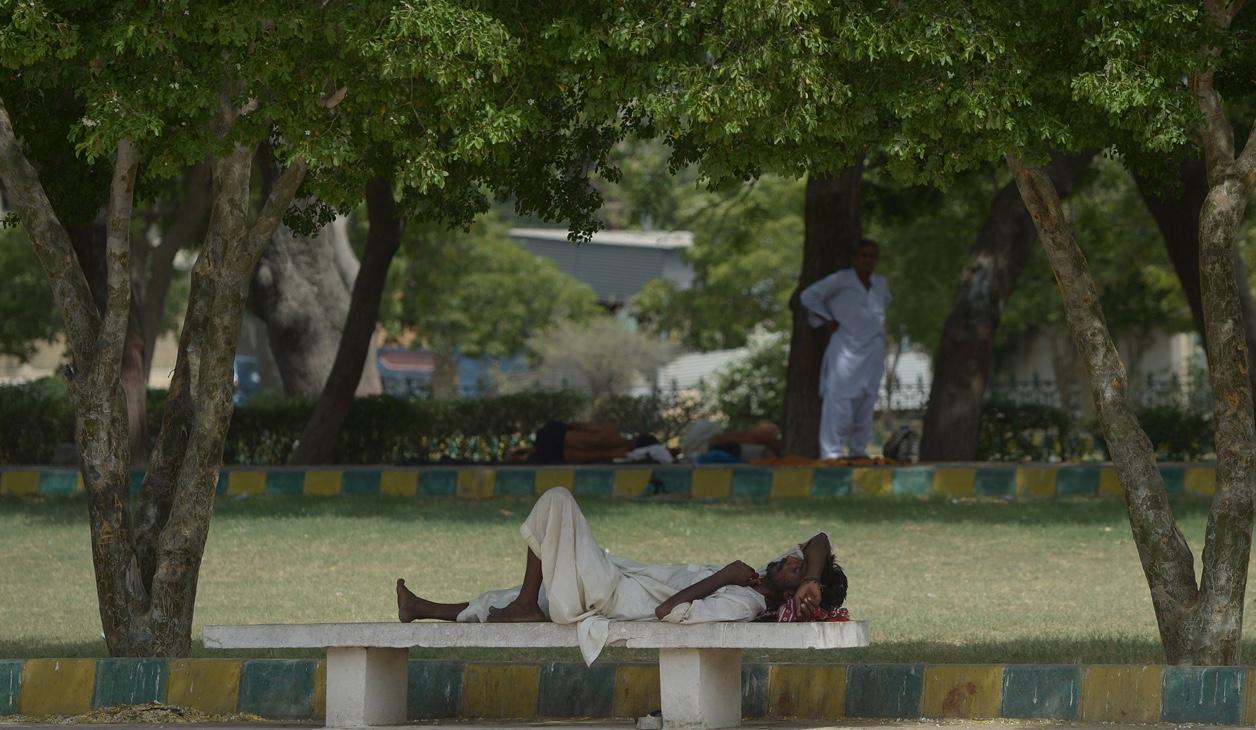Heat wave after heat wave is devastating South Asia
A Pakistani man rests under the shade of trees during a heatwave in Karachi, Pakistan on June 23, 2015.
Editor's note: This is Chatter, our morning rundown of what you need and want to know around the world. Fortunately for us all, you can have Chatter emailed to you every day. Just sign up here!
NEED TO KNOW:
A devastating heat wave is ravaging parts of Pakistan. More than 1,000 people have already died in the city of Karachi, where temperatures have surged to 111 degrees Fahrenheit. Compounding the problem are rolling blackouts.
The provincial government apparently owes the electricity company a billion dollars. That's money that could have been spent on upgrading its infrastructure. Instead, illegal hook-ups and other problems are causing electric lines to become overloaded.
The results are gruesome. Karachi morgues are running out of space to store bodies, forcing many of them to leave the corpses out in body bags. And with the lack of electricity the morgues have no way to keep the bodies cool.
The heat wave in Pakistan comes a month after a similarly devastating heat wave in India. Temperatures at the end of May in southern India reached as high as 117 degrees Fahrenheit. More than 1,100 people died there in less than a week. India also struggles to provide electricity to all its people, meaning many were unable to find relief from the extreme temperatures.
WANT TO KNOW:
In the United States, the Department of Justice estimates that about 100 to 200 children are kidnapped every year. In China, that number could be as high as 200,000. It's a massive problem.
The root of it all is China's three-decade-long policy of one child per family. Since Chinese society values male heirs, desperate families will do desperate things — like pay a lot of money to kidnappers — to obtain a male child.
It is such an overwhelming problem that many Chinese are calling on the government to institute the death penalty for child kidnappers as a deterrent. Right now, law enforcement doesn't react to a potential kidnapping unless the child has been missing for 24 hours, which is often plenty of time for a kidnapper to disappear.
Private citizens are also creating apps and alert systems that might make up for that delay. A Nanjing mall reportedly became the first to launch an automated alert system this month to report missing family members. And Momo, a popular dating app, added a feature allowing its 78 million users to report and identify suspected kidnap victims in their area.
STRANGE BUT TRUE:
US President Barack Obama is finally heading to Kenya next month. And the Kenyan government is sparing no expense. It is spending millions of dollars to clean up trash, plant flowers and ease traffic before he arrives. The country as a whole is really, really excited.
Obama's father was born in the village of Kogelo and the president still has relatives who live there, including his step-grandmother Sarah Obama. So many Kenyans feel a special closeness to the US president.
They also have some outsized expectations about the visit: “His coming will help the economy,” one Kenyan told GlobalPost Senior Correspondent Erin Conway-Smith, echoing a widely held belief. “It will help tourism. It will help security. … We believe that when he comes, many things will change.”
Americans thought the same thing once.
The story you just read is accessible and free to all because thousands of listeners and readers contribute to our nonprofit newsroom. We go deep to bring you the human-centered international reporting that you know you can trust. To do this work and to do it well, we rely on the support of our listeners. If you appreciated our coverage this year, if there was a story that made you pause or a song that moved you, would you consider making a gift to sustain our work through 2024 and beyond?
